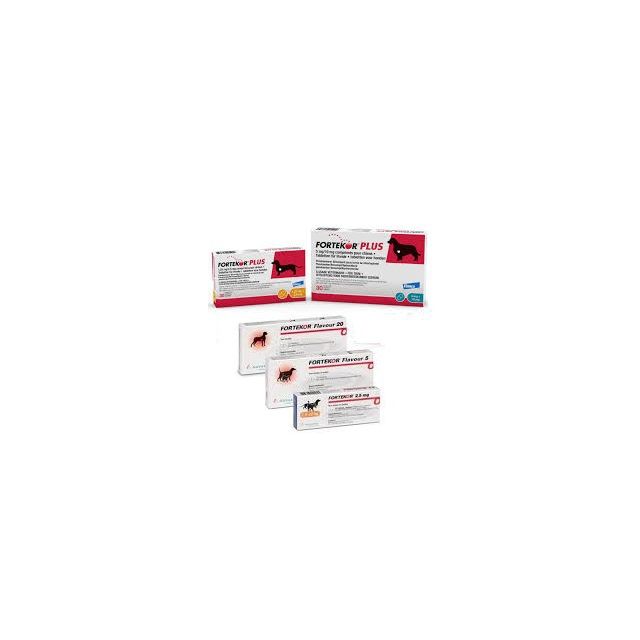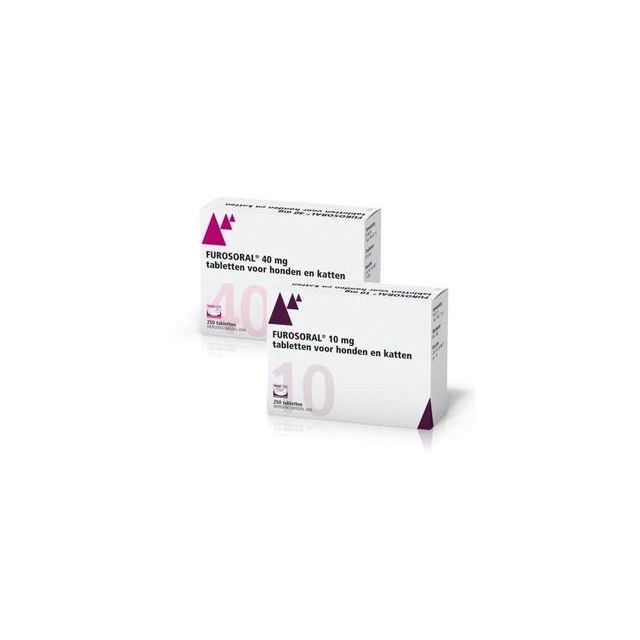The heart of the cat
The heart is the most important organ in all animal species, literally keeping the animal alive. In cats, there are a number of 'heart and vascular diseases', of which hypertrophic cardiomyopathy, thickening of the heart muscle, and hypertension, high blood pressure, are the most important. Pharmacy4pets helps you take care of your cat with heart failure or high blood pressure as best as possible.
Hypertrophic cardiomyopathy in cats
The most important heart condition in the cat is hypertrophic cardiomyopathy, abbreviated as HCM. Hypertrophic means enlargement or thickening, cardio refers to heart, and myopathy is the term for a muscle disease. In short, HCM is a disease of the heart muscle where it thickens. HCM can lead to heart failure (fluid in the lungs), thrombosis (blockage of a blood clot in the hind legs), and sudden death of the cat.
Symptoms of HCM in cats
In most cats in the early stages of HCM, you won't notice anything. The heart is such an important organ that it tries to compensate for emerging problems for as long as possible. For example, if there is less blood in the heart chamber due to thickening of the muscle, it may beat faster. And as a pet owner, you won't notice anything about your cat. Especially because most cats lead a fairly lazy life, a decrease in endurance simply does not stand out. It may be that during the check-up by the veterinarian for, for example, vaccination, a heart murmur or an irregular heartbeat is heard. At some point, the heart can no longer cope, and heart failure occurs. Symptoms occur at that moment.
Symptoms of heart failure in cats:
- Acute shortness of breath due to fluid in the lungs (pulmonary edema) or chest cavity (pleural effusion): you may notice that your cat breathes faster or that there are more or abnormal movements of the abdomen and chest during breathing. Your cat may also pant. Usually, there are no abnormal sounds when breathing.
- Thrombosis: a blood clot gets stuck, often in the artery supplying blood to the hind legs. The result is usually very painful paralysis of the legs.
- Poor condition.
- Fainting.
- Sudden death without preceding symptoms.
Which cats get HCM?
All cats of all ages can get HCM. It is more common in certain breeds including the Maine Coon, Ragdoll, Norwegian Forest Cat, British Shorthair, and the Sphynx.
Diagnosis of HCM in cats
During the physical examination, a heart murmur and sometimes an irregular heartbeat are often heard. An echo can determine the thickness of the heart muscle. Sometimes an X-ray shows an enlargement of the heart and fluid in the lungs or chest can be diagnosed. Heart rhythm disturbances can be investigated by making an electrocardiogram (ECG).
In some breeds, genetic predisposition can be determined with blood tests.
Thickening of the heart muscle can also be caused by high blood pressure, kidney failure, thyroid problems, and other hormonal diseases. Therefore, blood pressure measurement and blood tests may be necessary to exclude other diseases.
Treatment of HCM in cats
HCM cannot be cured. If heart failure has occurred, diuretics can be used to remove fluid from the lungs or chest cavity. Heart rhythm disturbances can be treated with medication. Furthermore, blood thinners can reduce the risk of blood clot formation.
Hypertension in cats
Hypertension, or high blood pressure, is common in cats and can have serious consequences for their health. High blood pressure is generally treatable, but it must be detected in time. Hypertension is often a consequence of an age-related disease and therefore mainly occurs in older cats. Pharmacy4pets tells you what to look out for to recognize high blood pressure in your cat at an early stage and helps with the treatment of your cat with hypertension.
Causes of high blood pressure
Approximately twenty percent of cats with chronic kidney disease also have high blood pressure. The same applies to cats with an overactive thyroid gland. A adrenal tumor also causes hypertension. Sometimes no cause for high blood pressure is found.
Symptoms of hypertension in cats
A cat with high blood pressure may have headaches, manifesting as lethargy, hiding, reduced interaction, or not wanting to be touched. A cat with hypertension can also become blind, have a stroke, heart failure, or kidney failure. Until these problems occur, you usually won't notice anything about your cat.
Because high blood pressure often occurs in conjunction with other diseases, the symptoms of those diseases may be noticeable. Think of vomiting, decreased appetite, increased drinking and urination, and weight loss in chronic kidney disease. Cats with an overactive thyroid gland are often very restless, eat much more than normal, but still lose weight. Sometimes vomiting, diarrhea, and/or increased drinking and urination are noticeable. With an adrenal tumor, muscle weakness due to a potassium deficiency is sometimes noticeable, especially in the neck muscles: the cat lets its head hang.
Because the consequences of high blood pressure can be so serious and the symptoms often only become clear when a lot of damage to the retina, brain, heart, or kidneys has occurred, it is wise to have your older cat's blood pressure measured annually, even if you don't notice anything. This is especially important if your cat has been diagnosed with kidney failure, heart problems, an overactive thyroid gland, blindness, or a stroke.
Treatment of hypertension in cats
Fortunately, there is good medication for high blood pressure in cats. Regular blood pressure measurement is important so that the dosage can be adjusted if necessary. Sometimes it is necessary to add other medication. Of course, any underlying conditions must also be treated, for example by giving a kidney diet or medication for an overactive thyroid gland.
In most cats, elevated blood pressure can be well controlled. Of course, the prognosis depends partly on any underlying disease that may be present. Any damage caused by high blood pressure can sometimes partially or completely recover. In some cases, however, the cat remains partially sighted, blind, or suffers from brain damage.
Because heart problems and high blood pressure in cats often only show symptoms late, it is very important to have your cat checked annually by a veterinarian so that the conditions can be detected and treated as early as possible. Pharmacy4pets supports your cat with heart problems with medication available on prescription. If you have any questions about our products or about heart problems or high blood pressure in your cat, please contact us.



